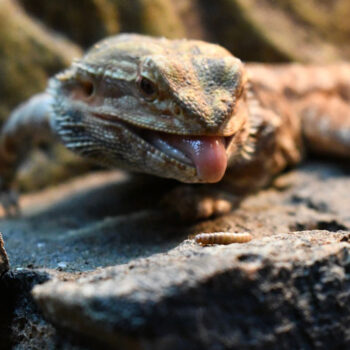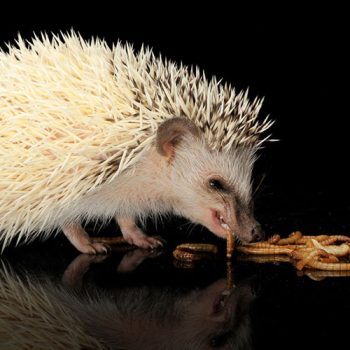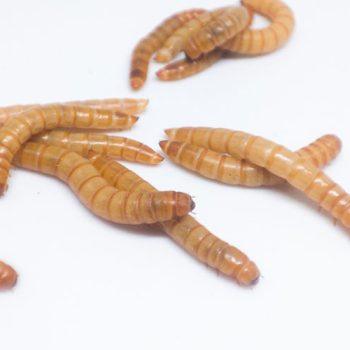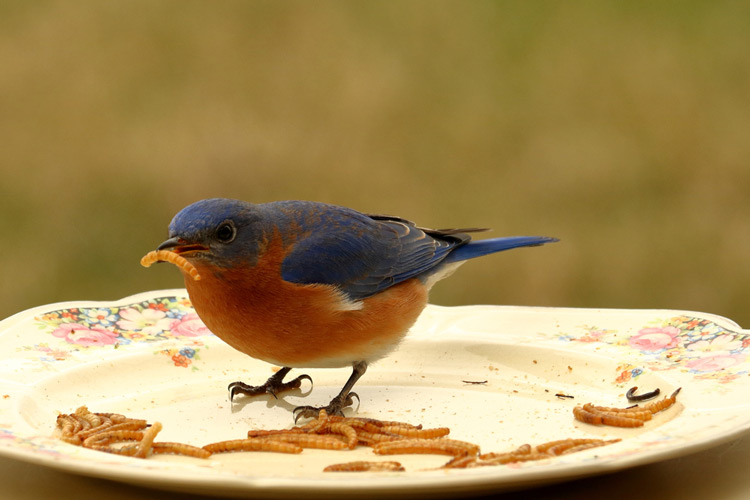
Learning about Your Bluebirds Diet
Beautiful and demure, bluebirds can make for the perfect companion for any individual, no matter how old you are. However, bluebirds require constant care and attention, especially concerning their diet.
Before you buy generic mealworms for your bluebird, it might be time to understand what your bird can and cannot eat. When you have thorough knowledge about the best diet for them, nothing will stop your bird from flourishing and growing up healthy.
What Is Their Diet?
While bluebirds are highly desired birds, they can be very picky eaters, and you might need to mix and match different foods before you find the perfect combination. Bluebirds are thrushes, meaning that they primarily feed on insects and fruits.
Bluebirds can typically eat the following foods, depending on the availability and quality:
Snails, caterpillars, grub, worms, and insect larvae
Crickets, grasshoppers, beetles, ants, and spiders
Moths, termites, and other flying insects
Berries like holly, dogwood, and pokeweed
Vine fruits like grapes and cherries
While most bluebirds do stick to a range of these foods, your bird might also like to eat other fruits like apples and strawberries. However, if you plan on introducing these foods, do so in small quantities. It is advisable to consult a vet before you choose to feed your bluebird anything other than their primary diet.
How to Find Optimal Sources of Nutrition
When you are determining the optimal diet for your bluebird, it is crucial that you look through online resources that cater to bluebird rearing. You can find mealworms for bluebirds from reputed businesses that can also advise you on how to ensure the best diet for your bird.
Ideally, you should try to incorporate a combination of foods to keep things interesting for your bluebird. You might also see that if you keep feeding your bluebird the same things repeatedly, they begin to lessen how much they eat.
Ensuring Proper Portions
The size, weight, age, and sex of your bluebird can determine how much it should eat. Because the food that bluebirds prefer to eat is very rich, it is important that you do not overfeed them. Small quantities throughout the day are ideal when you don’t want your bird to develop health issues.
You might want to try giving them a quantity that they can consume over a day or two and see if your bird is able to eat the portions fully. If you have more than one bird, it’s crucial that you observe them see if one bird is taking more food than the other.
Consulting a Professional
If you’ve never raised a bird before, it can be quite overwhelming to understand how much and when you’re supposed to feed them. You can try consulting a professional to have peace of mind about your bird’s diet. If you’re buying your bird feed from a reputable business, you will be able to find a dedicated customer support team that can guide you through a bluebird’s diet.
You can also consult a vet about the best diet for your bluebird and understand if there are any warning signs you should watch out for when feeding your bird.
Looking for Nutritional Food For Your bluebirds diet? We’re Here to Help
When you want the best for your bird, food quality is crucial to help maintain its health and happiness. At Sunshine State Worms, we provide an extensive range of mealworms and superworms that can cater to your bird’s diet perfectly.
Call us today at 727-207-6753 to place an order.
Post Views: 521
Recent Posts
Recent reviews
-
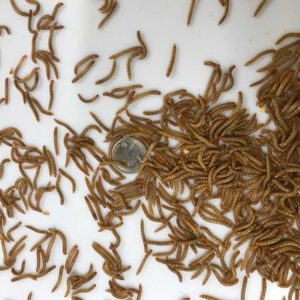 3/4" Medium Mealworms
Rated 5 out of 5by Barbara
3/4" Medium Mealworms
Rated 5 out of 5by Barbara -
 3/4" Medium Mealworms
Rated 5 out of 5by Conny
3/4" Medium Mealworms
Rated 5 out of 5by Conny -
 3/4" Medium Mealworms
Rated 5 out of 5by Cathi Perry
3/4" Medium Mealworms
Rated 5 out of 5by Cathi Perry
Tags
chameleons
crickets
crickets for sale
feeder insects
feeders for reptiles
fishing bait
hornworms
inspect live worms
live crickets
live crickets for sale
live feeder worms
live worms for sale
mealworm
mealworm casting
mealworm castings
mealworm diet
mealworms
mealworms castings
mealworms castings for sale
mealworms for birds
mealworms for chameleons
mealworms for reptiles
mealworms for sale
online worms for sale
online worm supplier
pet nutrition
pet reptile food
protein for reptiles
reptile diet
reptile diet tips
reptile feeders
reptile feeding tips
reptile food
reptile food for sale
reptile health
reptile nutrition
shipping feeder insects
snack for birds
Sunshine State Worms
superworm care
superworms
superworms for reptiles
superworms for sale
worms for reptiles
worms for sale

